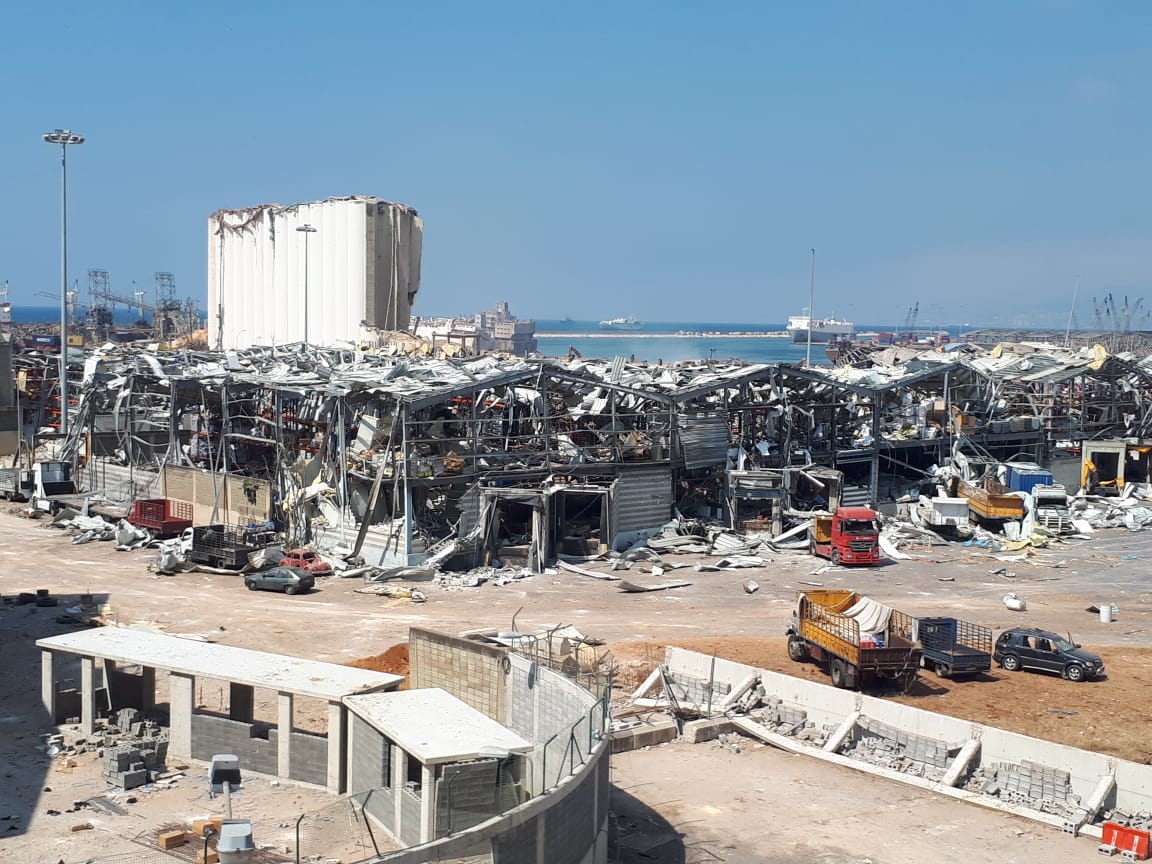BEIRUT (Parliament Politics Magazine) – On August 4, 2020, at 6:07 p.m. local time, hundreds of tonnes of dangerously stored ammonium nitrate ignited in Warehouse 12 in the Port of Beirut. The third biggest non-nuclear explosion devastated the port and a whole district of the capital.
Over 7,000 people were injured, at least 220 people died, and a city that was already experiencing an economic and political crisis was rendered paralysed by a mushroom cloud of pink haze.
The investigation into the port explosion would be open and transparent. Any officials responsible would be held accountable in five days, declared Mohammed Fahmi, Lebanon’s interior minister at the time, following the explosion.
And yet, two years later, the official Lebanese state’s investigation is still stagnant as families continue to suffer from the loss of their loved ones, homes and businesses.
On July 31, a portion of the port’s now ominously famous grain silos collapsed, scattering dust over the city and bringing back painful memories of the explosion.
Plans for the silos’ controlled demolition, which were severely damaged yet remarkably withstood the 2020 blast despite taking much of its force, were recently approved by the Lebanese Cabinet.
Residents of Beirut and victim support groups have expressed fury over the decision and demanded that the silos be kept until a thorough and appropriate investigation into the explosion is completed.
Many blame the Lebanese government’s corruption and poor management for the explosion and its consequences.
The status quo, which dates back to the 1975–1990 civil war, has made those in power almost untouchable, and as the case passes from one presiding judge to the next, it has reduced the investigation to little more than a finger-pointing contest.
By doing so, politicians have practically guaranteed the total impunity of officials who have been sought after for interrogation, arrest, and prosecution for a long time.
More than 25 requests calling for the firing of Judge Tarek Bitar and other investigators have been submitted by officials who may have been involved in the explosion.
Judge Bitar has charged four former top officials of willful carelessness that caused the explosion that killed hundreds of people.
As a result of the suspects’ legal objections against the judge, the inquiry was almost completely suspended in December 2021.
Ghazi Zaaiter and Ali Hassan Khalil, the two officials, have just been elected again as MPs.
When Maj. Gen. Imad Othman, the director general of the Internal Security Forces, was seen with Ghazi Zaaiter and Ali Hassan Khalil — the two men who should have been issued arrest warrants to, he chose to do nothing — it was clear that corruption was deeply ingrained.
Survivors and the relatives of victims have gone to courts outside Lebanon in search of justice after becoming hopeless and disillusioned.
They have urged the UN Human Rights Council to propose a resolution at its upcoming session in September to establish an unbiased and independent “fact-finding mission” to investigate the situation alongside local and international groups.
It is expected that an investigation of this kind will document the facts, evaluate the effects, identify the primary causes of the explosion, and assign individual responsibility.
Executive director of Legal Action Worldwide and power of attorney for many of blast survivors Antonia Mulvey said that they had been working with the survivors and victims since September 2020 on that request.
While a domestic probe was preferred, they recognised that Lebanon’s system was highly flawed and unable to provide the truth when it required defying senior government officials.
If the resolution was approved, UN personnel may be sent on an assignment with a one-year deadline to help and assist the criminal investigation. France is the sole country preventing the resolution from passing, and they were unsure of why.
The situation was unacceptable since the victims’ families and survivors’ suffering was being exacerbated by the legal system’s dragging pace.
A hundred twenty victims and survivors had told how everyday was like being tortured. Particularly the people who suffered the loss of their children must move forward despite being unable to do so, she said.
The memorial approaching didn’t really matter when every day was challenging. Senior government and security officials were the targets of accusations. They needed to have hope and fight for that. In the event that they didn’t, they would still be facing the same issue in 20 or 30 years.






